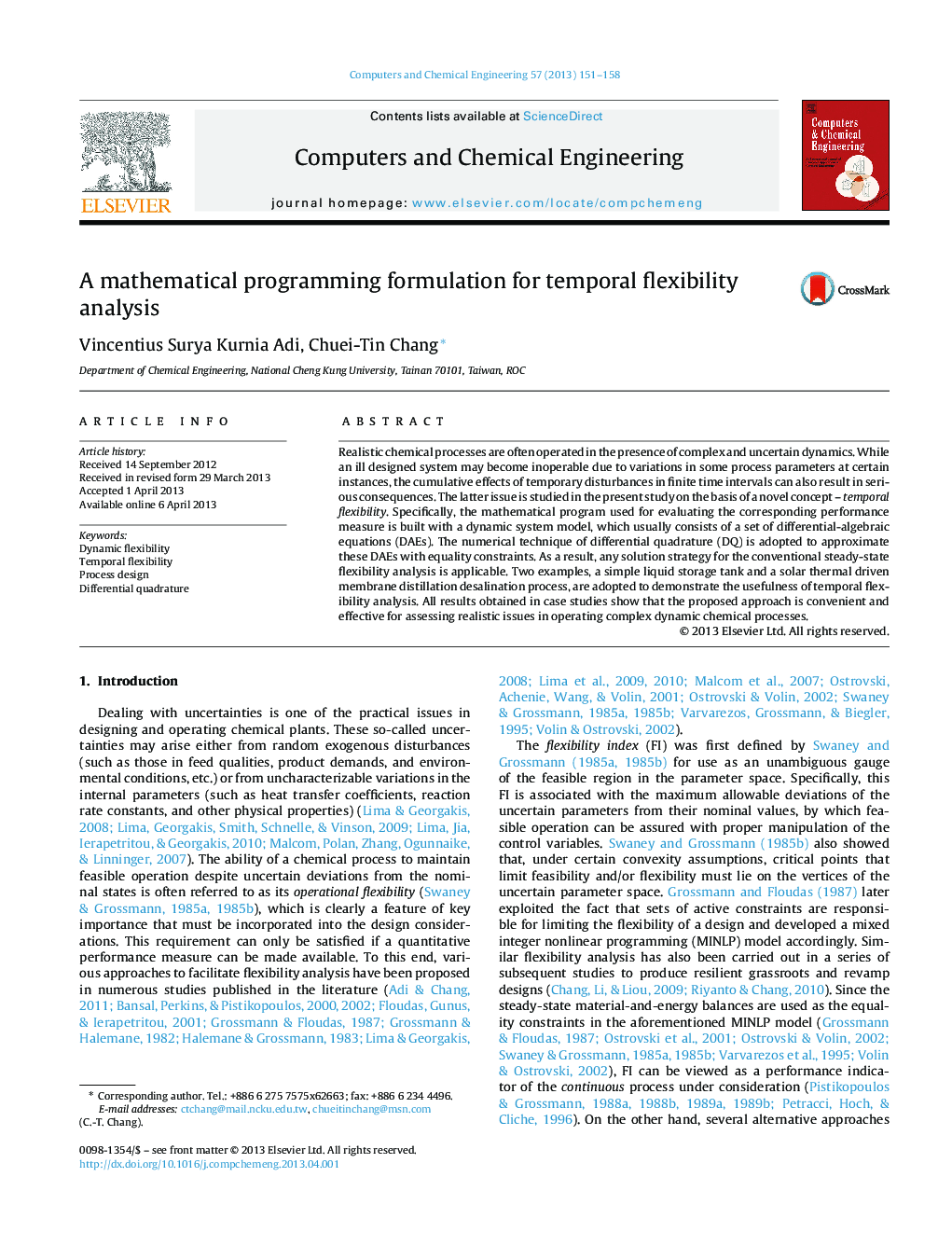| کد مقاله | کد نشریه | سال انتشار | مقاله انگلیسی | نسخه تمام متن |
|---|---|---|---|---|
| 172506 | 458546 | 2013 | 8 صفحه PDF | دانلود رایگان |

• The cumulative effects of temporary disturbances in finite time intervals are analyzed.
• A novel concept of temporal flexibility is proposed for use as a performance measure.
• Differential quadrature is adopted to approximate the dynamic model.
• The usefulness of temporal flexibility analysis is demonstrated in realistic examples.
Realistic chemical processes are often operated in the presence of complex and uncertain dynamics. While an ill designed system may become inoperable due to variations in some process parameters at certain instances, the cumulative effects of temporary disturbances in finite time intervals can also result in serious consequences. The latter issue is studied in the present study on the basis of a novel concept – temporal flexibility. Specifically, the mathematical program used for evaluating the corresponding performance measure is built with a dynamic system model, which usually consists of a set of differential-algebraic equations (DAEs). The numerical technique of differential quadrature (DQ) is adopted to approximate these DAEs with equality constraints. As a result, any solution strategy for the conventional steady-state flexibility analysis is applicable. Two examples, a simple liquid storage tank and a solar thermal driven membrane distillation desalination process, are adopted to demonstrate the usefulness of temporal flexibility analysis. All results obtained in case studies show that the proposed approach is convenient and effective for assessing realistic issues in operating complex dynamic chemical processes.
Journal: Computers & Chemical Engineering - Volume 57, 15 October 2013, Pages 151–158